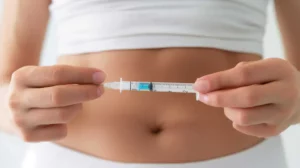Hydration plays a vital role in maintaining our overall health and well-being. It is essential to replenish the fluids our bodies lose to ensure optimal functioning. Regarding hydration methods, two prominent options often arise IV hydration and oral rehydration. Both approaches have their distinct advantages and effectiveness in different situations. This blog will compare the efficacy and benefits of IV hydration and oral rehydration.
IV hydration involves intravenous fluids and nutrients directly into the bloodstream, providing rapid absorption and precise control of fluid intake. On the other hand, oral rehydration involves consuming fluids and electrolytes orally, promoting natural absorption and gut function. Understanding the differences, benefits, and appropriate usage of these methods is crucial for making informed decisions regarding hydration.
By exploring the effectiveness, safety, cost, accessibility, and personal preferences associated with IV hydration and oral rehydration, we aim to provide valuable insights to help individuals choose the most suitable approach for their specific hydration needs.
IV Hydration: Definition and Benefits
IV hydration, also known as intravenous hydration, involves the administration of fluids and essential nutrients directly into the bloodstream through a vein. This method bypasses the digestive system, allowing for rapid absorption and immediate hydration of the body.
IV hydration offers several advantages that make it a preferred choice in specific situations:
- The rapid absorption of fluids and nutrients: By directly infusing fluids into the bloodstream, IV hydration delivers hydration and essential nutrients quickly, bypassing digestion. This is particularly beneficial in cases where immediate hydration is crucial, such as severe dehydration or certain medical conditions.
- Effective for severe dehydration cases: IV hydration is highly effective for treating severe dehydration caused by excessive fluid loss, whether due to illness, intense physical activity, or certain medical procedures. The direct infusion of fluids ensures the body receives the necessary hydration to restore balance and support overall health.
- Allows for precise fluid intake control: IV hydration gives healthcare professionals precise control over the volume and composition of fluids being administered. This level of control is essential in managing specific medical conditions, electrolyte imbalances, or situations where careful monitoring of fluid intake is necessary.
Oral Rehydration: Definition and Advantages
Oral rehydration is a method of replenishing fluids and electrolytes by consuming specially formulated solutions or beverages. These solutions contain a precise water, salt, and sugar balance to promote effective hydration and restore the body’s electrolyte balance.
Oral rehydration offers several advantages that make it a favorable option in various situations:
- Convenient and accessible: One of the key advantages of oral rehydration is its convenience and accessibility. Oral rehydration solutions are readily available over-the-counter at pharmacies and can even be prepared at home using simple ingredients. This accessibility makes it a practical choice for individuals seeking immediate hydration in non-emergency situations.
- Suitable for mild to moderate dehydration: Oral rehydration is particularly effective for mild to moderate cases of dehydration, such as those resulting from physical activity, heat exposure, or common illnesses like diarrhea and vomiting. It allows individuals to replenish lost fluids and electrolytes without medical intervention.
- Promotes natural absorption and gut function: When consumed orally, rehydration solutions are absorbed through the intestines, allowing for natural and efficient absorption. This process supports restoring the body’s fluid balance and helps maintain normal gut function. Oral rehydration also aids in reducing the duration and severity of symptoms associated with certain illnesses that cause fluid loss.
IV Hydration Vs. Oral Rehydration Effectiveness
Regarding hydrating our bodies, two prominent methods often come into play: IV hydration and oral rehydration. Understanding the effectiveness of these approaches is crucial for making informed decisions about which method to employ in different situations. In this section, we will compare the effectiveness of IV hydration and oral rehydration, examining their advantages and suitability in various clinical scenarios.
Clinical situations where IV hydration is preferred:
- Severe dehydration: IV hydration is highly effective in severe dehydration, such as excessive fluid loss due to severe diarrhea, vomiting, or certain medical conditions. The direct infusion of fluids into the bloodstream ensures rapid rehydration, addressing the critical nature of these situations.
- Electrolyte imbalances: IV hydration is particularly beneficial for correcting electrolyte imbalances, such as low sodium or potassium levels. The precise control over fluid composition and the ability to administer specific electrolyte solutions allow for the effective restoration of electrolyte balance, which may be challenging to achieve solely through oral rehydration.
- Surgical procedures or hospitalization: In situations where a patient is unable to consume fluids orally due to surgical procedures, certain medical conditions, or prolonged hospitalization, IV hydration becomes essential. It ensures adequate hydration and nutrient supply during recovery when oral intake may not be feasible or sufficient.
Comparison of IV hydration’s effectiveness in specific scenarios:
- Excessive fluid loss due to vomiting or diarrhea: IV hydration is highly effective in rapidly replenishing lost fluids and electrolytes in severe vomiting or diarrhea cases. It provides immediate hydration, which may be critical to prevent complications associated with fluid imbalance.
- Electrolyte imbalances: IV hydration allows for the precise administration of electrolytes, making it a highly effective method for correcting imbalances in severe cases. Directly delivering electrolytes to the bloodstream facilitates efficient repletion and helps restore normal electrolyte levels more rapidly than oral rehydration alone.
- Surgical procedures or hospitalization: IV hydration is indispensable when oral intake is restricted or insufficient, such as after surgical procedures or during hospitalization. It ensures patients receive adequate hydration, essential nutrients, and medications directly into their bloodstream, supporting their recovery.
Situations where oral rehydration is effective:
- Mild dehydration due to physical activity or heat exposure: Oral rehydration is effective in mild dehydration resulting from physical activity, sweating, or heat exposure. It allows individuals to replenish lost fluids and electrolytes at a manageable pace, supporting their hydration needs during such situations.
- Rehydration for athletes and sports performance: Oral rehydration is commonly used by athletes to maintain hydration during training and competition. It provides a practical and convenient method to replenish fluids and electrolytes, helping athletes sustain their performance and prevent the onset of dehydration-related issues.
- Prevention and management of hangovers: Oral rehydration solutions can effectively alleviate the symptoms of hangovers, which are often caused by dehydration. Consuming fluids with the appropriate balance of water, salts, and sugars can help rehydrate the body and alleviate some discomfort associated with a hangover.
Takeaway
Are you ready to experience the benefits of IV hydration for optimal health and wellness? Look no further than Skynn MD! Our skilled professionals are here to provide you with the highest quality IV hydration treatments tailored to your specific needs.
Say goodbye to fatigue, dehydration, and sluggishness. With IV hydration at Skynn MD, you can enjoy the advantages of rapid hydration, precise nutrient delivery, and personalized care. Book an appointment or consider a virtual consultation today!











